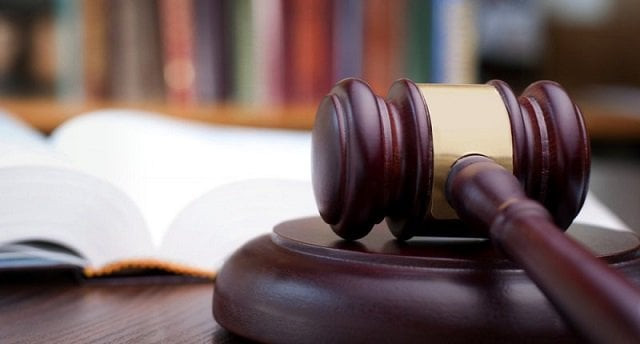Justice KK Agha’s fate still hangs in balance
SC’s June 19 order is silent about fate of reference filed against SHC judge

PHOTO: REUTERS
The PTI led federal government on May 23, 2019 filed two presidential references and the Supreme Judicial Council (SJC) – the only constitutional forum that can hold a superior court judge accountable – had issued show-cause notices to both the judges.
While Justice Isa had challenged the presidential reference and the SJC proceedings in the apex court, Justice KK Agha had not done that. However, the Sindh Bar Council (SBC) in its petition against Isa reference had also requested the court to quash the reference against Justice Agha.
The short order that the SC ten-judge full court issued on June 19 is silent about the fate of Agha reference. A senior lawyer said the SHC judge should wait for the detailed judgment to know whether he would also have to face the Federal Board of Revenue (FBR) proceedings.
According to sources, the federal government is not interested now in filing any reference in the SJC against any judge. Interestingly, the government had used the same procedure to collect evidence against both judges and relied on the Assets Recovery Unit (ARU) and the FBR reports.
Justice Isa has raised objection to the manner in which material was collected for filing the reference against him. He had accused the government of conducting espionage against him and his family members. The SC had noted that espionage of a judge was a serious offense.
Allegations against SHC judge
The federal government in its presidential reference had alleged that although the SHC judge had declared his foreign properties in 2018, he had not disclosed their ‘value’.
The government had also accused the SHC judge of concealing his immovable properties in Pakistan prior to the tax year 2015 despite the fact that his annual income was over Rs1 million.
With its complaint, the federal government had attached an FBR report which said Justice Agha jointly purchased a property, “No 17 Calvert Close Belvedere Kent”, on November 24, 2005 but did not declare it in his wealth statement until the tax year 2018.
Even then, the property was declared at zero value.
The report further stated that the SHC judge had not filed his tax declarations between 2005 and 2014. He filed his declarations for the tax years 2015, 2016 and 2017, but did not disclose his property in Kent, United Kingdom
“These properties are not accounted for in his wealth reconciliation statement for the tax year 2018 and before,” read the reference. It also stated that the value or cost of acquisition of the UK properties had not been stated intentionally in violation of the law.
“The sole purpose of showing these properties at zero value for the year 2018 appears to be to evade the duty to reconcile his wealth, which the learned judge could not do so if he had assigned values to the cost or the present market prices of such properties.
“There is thus clear-cut concealment and violation of section 116 of the 2001 Ordinance, begging the application of penal provisions of law,” said the reference. It said Justice Agha had violated Article II of the Code of Conduct of Judges according to which judges should be blameless.
It is learnt that the properties of the SHC judge are inherent or purchased prior to his holding the public office. Some senior lawyers also believe that there are many legal defects in the reference against him. The reference against Justice Agha was a cover and Justice Isa was the main target, said a legal expert.



1724319076-0/Untitled-design-(5)1724319076-0-208x130.webp)















COMMENTS
Comments are moderated and generally will be posted if they are on-topic and not abusive.
For more information, please see our Comments FAQ